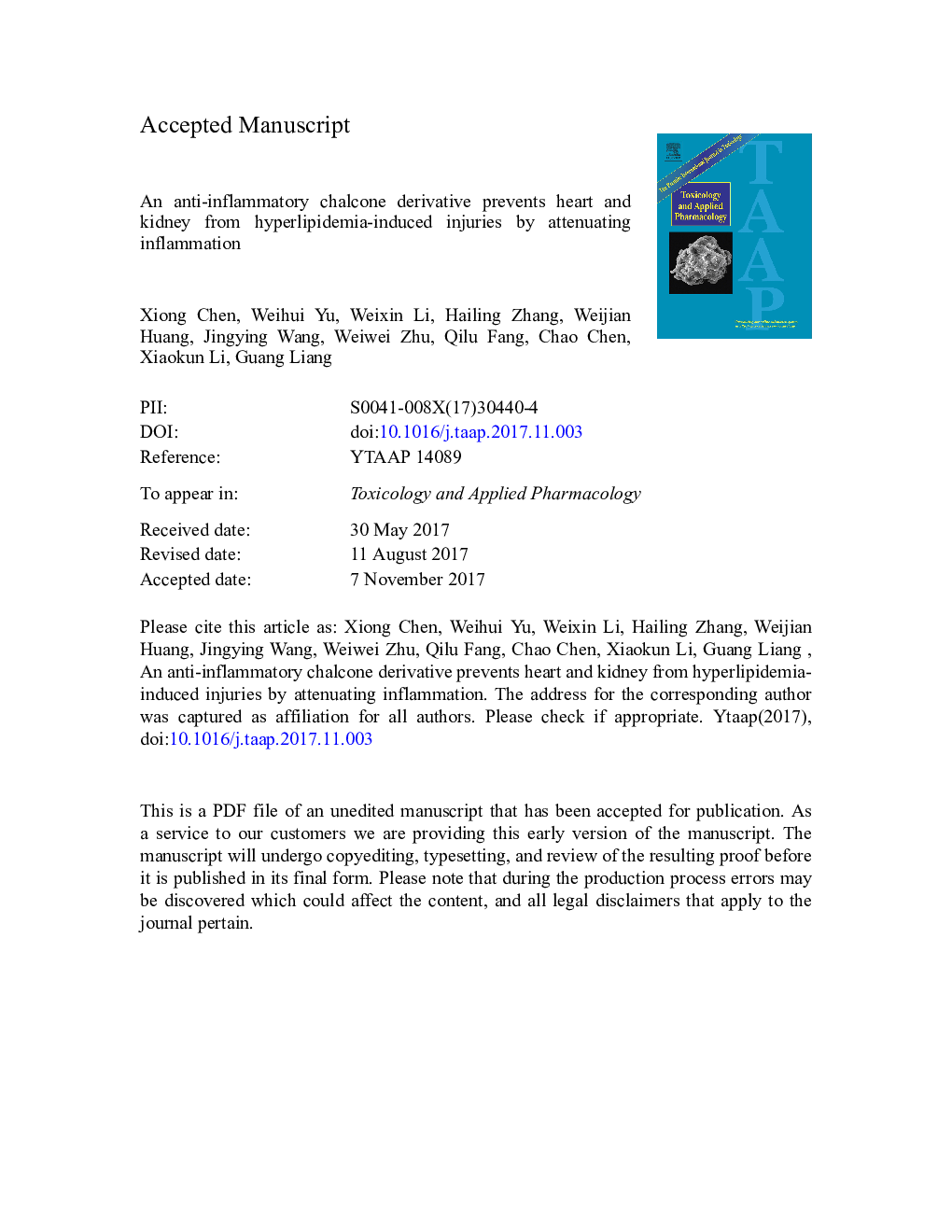| Article ID | Journal | Published Year | Pages | File Type |
|---|---|---|---|---|
| 8538973 | Toxicology and Applied Pharmacology | 2018 | 43 Pages |
Abstract
Obesity is a growing pandemic in both developed and developing countries. Lipid overload in obesity generates a chronic, low-grade inflammation state. Increased inflammation in heart and renal tissues has been shown to promote the progression of heart and renal damage in obesity. Previously, we found that a novel chalcone derivative, L6H21, inhibited lipopolysaccharide-induced inflammatory response. In the present study, we investigated the effects of L6H21 on inflammatory responses in culture and in animal models of lipid overload. We utilized palmitic acid (PA) challenging in mouse peritoneal macrophages and apolipoprotein E knockout (ApoEâ/â) mice fed a high fat diet (HFD) to study whether L6H21 mitigates the inflammatory response. Our studies show that L6H21 significantly reduced PA-induced expression of inflammatory cytokines in macrophages by inhibiting mitogen-activated protein kinase (MAPK) and nuclear factor-κB (NFκB) signaling pathways. L6H21 also reduced fibrosis in the kidney and heart tissues, and indices of inflammatory response in the ApoEâ/â mice fed a HFD. These effects in vivo were also associated with inhibition of MAPK and NFκB signaling by L6H21. These findings strongly suggest that L6H21 may be a potential agent for high fat diet-induced injuries in heart and kidney.
Related Topics
Life Sciences
Environmental Science
Health, Toxicology and Mutagenesis
Authors
Xiong Chen, Weihui Yu, Weixin Li, Hailing Zhang, Weijian Huang, Jingying Wang, Weiwei Zhu, Qilu Fang, Chao Chen, Xiaokun Li, Guang Liang,
